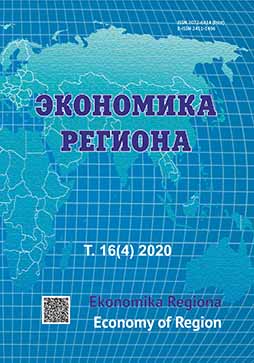Прекаризация труда как растущая форма занятости молодых специалистов в условиях пандемии
Precarisation of Labour as a Growing Form of Employment of Young Specialists in the Context of the Сovid-19 Pandemic
Author(s): Viktor Anatolyevich Koksharov, Gavriil Aleksandrovich Agarkov, Anastasia Dmitrievna SushchenkoSubject(s): Economy, Labor relations, Health and medicine and law
Published by: Институт экономики Уральского отделения Российской академии наук
Keywords: precarisation; precariat; freelancers; underemployment; IT professionals; foreign students; precarious employment during the Covid-19 pandemic; labour market; employment; university graduates;
Summary/Abstract: The Сovid-19 pandemic has catalysed the inevitable digitalisation of communications and rapidly changed the organisation and technologies of professional activities of millions of employees worldwide. The growth of unemployment, the transition of professional groups to remote work (wherever possible) due to the need for isolation to minimise the spread of COVID-19 in2020 led to radical changes in the labour market. Studying the processes of precariation can facilitate the search for responses to new challenges related to deregulation of labour relations. We are interested in examining the participation of youth in these processes. Young population is receptive to social innovation and has excellent competencies in the field of information technology. An analysis of professional trajectories of university graduates (employed in the Ural region and beyond) helps identify whether precarious employment in the labour market can be successful, and determine the characteristics of social groups involved. We used the monitoring of university graduates conducted in 2017–2019 based on survey and administrative data. To process the data, we applied the methods of classification and expert evaluations. The analysis showed that 34.4 % of university graduates belong to the precariat, with only 8.8 % being unemployed. Young freelancers and IT-professionals are successfully employed, satisfied with their jobs and high salaries, demonstrating high rates of employment in their specialty. The results can be applied for balancing precarious work; its best practices, accumulated by freelancers and IT-professionals, can be used as a social tool for regulating labour relations in an unfavourable epidemiological situation.
Journal: Экономика региона
- Issue Year: 16/2020
- Issue No: 4
- Page Range: 1061-1071
- Page Count: 11
- Language: Russian

